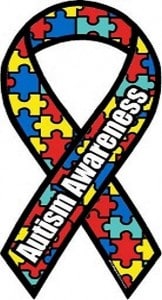
A recent study took a look at how autistic individuals feel about their social reputation. The study evaluated 10 adults with autism and 11 adults that did not have autism and tested them in a series of tests to determine if they noted the presence of the observer and how the presence of the observer impacted their willingness to donate money to a charity – an example of altruism.
Keise Izuma, California Institute of Technology researcher stated,
“We know that individuals with autism have social difficulty, but we are not sure what ‘social difficulty’ exactly means. The results argue that people with autism lack the ability to take into consideration what others think of them.”
Set to publish this week in the journal Proceedings of the National Academy of Sciences, the study used a computer game in which the autistic group and the non-autistic group were asked to donate a certain amount of money to charities. The individuals could accept or reject the decision to donate money. If they donated, then the charity would gain that amount of money and the individual would lose that amount of money. If they rejected the request, then no change to the money distribution would be made.
The researchers found that, with an observer present, individuals without autism donated more money to charity, accepting more transactions than they did when the observer was not present. In the group of autistic adults, however, the number of accepted transactions was not affected by the presence of the observer.
This does not mean, however, that the autistic individuals were not aware of the observer. Another test, which basically determined attention span, asked participants to push a button when they saw the letter X on a screen. Both groups – autistic and non-autistic – performed better in this test with an observer present.
Based on this data, it is now speculated that autistic individuals may have problems with “metacognition” – a concern for what others think of them. It is thought that concern for social reputation is actually tied into certain sections of the brain.
Researchers did state that, since the study was in a controlled laboratory situation, that more research will need to be done. This does, however, give us a little more insight on how autistic individuals are affected by social situations.
Related Articles:
- Study: Stress Experienced by Preemies in NICU Reduces Brain Size
- Down Syndrome Families Speak Out About Their Experience
- Early Intense Therapy Benefits Children with Autism






